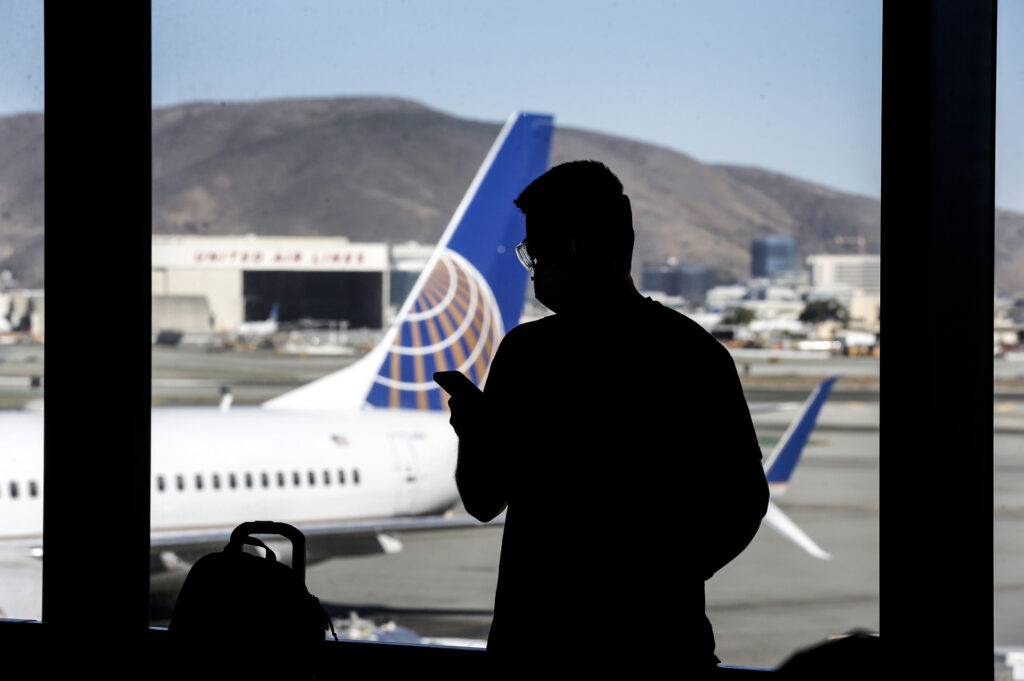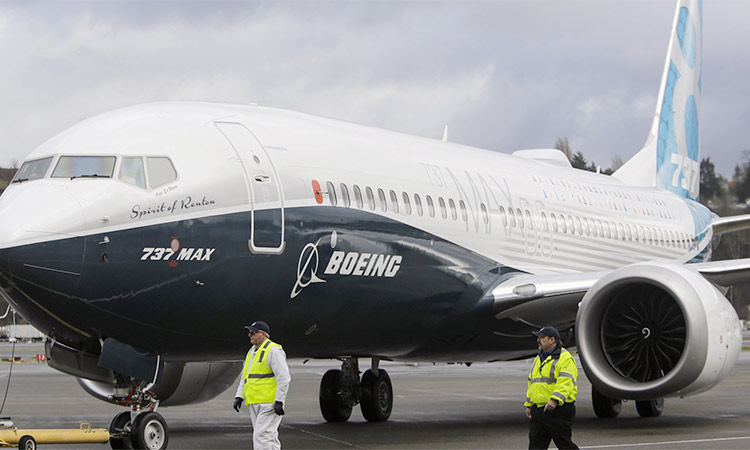Air Travel Woes Amplified: 5G Signals Pose Potential Disruption to Flights from This Weekend Onward
Starting Saturday, airline passengers who have already endured numerous weather-related flight delays may face additional disruptions. This is due to the anticipated activation of new 5G systems by wireless providers near major airports. Aviation groups have long expressed concerns about the potential interference of 5G signals with aircraft equipment, particularly devices that rely on radio waves to measure altitude, crucial for safe landings during low visibility conditions.
Last year, there were predictions that this interference would lead to extensive flight disruptions. However, when telecom companies introduced the new service, they agreed to restrict the power of the signals around busy airports. This granted airlines an additional year to upgrade their planes and mitigate potential risks.

While the leader of the nation’s largest pilots’ union acknowledged that flight crews would be capable of managing the impact of 5G, he criticized the process of granting wireless licenses. He argued that it introduced unnecessary risks to aviation, underscoring the need for a more cautious approach.
Transportation Secretary Pete Buttigieg recently cautioned airlines about the potential for flight disruptions stemming from a small fraction of the country’s aircraft fleet that has yet to undergo necessary upgrades to mitigate radio interference.
Transportation Secretary Pete Buttigieg
The majority of major U.S. airlines have assured readiness in this regard. American, Southwest, Alaska, Frontier, and United have confirmed the installation of radio altimeters on all their aircraft. Manufacturers specifically design these height-measuring devices to withstand any interference that 5G signals may cause.
However, Delta Air Lines stands out as an exception to this trend. The airline has disclosed that approximately 190 of its planes, predominantly smaller ones, still lack upgraded altimeters due to delays in the supply chain.
Delta has clarified that it does not anticipate any flight cancellations as a result of this issue. Instead, the airline intends to carefully strategize the routing of these 190 planes, minimizing the possibility of flight cancellations or deviations from airports with challenging visibility conditions such as fog or low clouds.
Several models of Airbus jets operated by Delta have yet to undergo retrofitting, including all A220s, most A319s and A320s, and some A321s. Delta stated that its Boeing jets and all Delta Connection planes, which are operated by Endeavor Air, Republic Airways, and SkyWest Airlines, have upgraded altimeters.
JetBlue did not provide a comment in response to requests, but The Wall Street Journal reported that the airline anticipated retrofitting 17 smaller Airbus jets by October, which may result in “limited impact” on certain days in Boston.
Major wireless carriers such as Verizon and AT&T utilize a portion of the radio spectrum known as C-Band for their 5G service. However, this frequency range is close to that used by radio altimeters. Despite receiving licenses from the Federal Communications Commission for the C-Band spectrum and dismissing any interference risks, claiming sufficient buffer space between C-Band and altimeter frequencies.
Federal Aviation Administration
Initially, when the Federal Aviation Administration supported the airlines’ concerns and opposed the wireless companies, the rollout of the new 5G service was delayed. However, a compromise was reached under the Biden administration, where wireless carriers agreed not to activate 5G signals near approximately 50 busy airports.
AT&T chose not to provide a comment, while Verizon did not immediately respond to a query regarding their plans.
Buttigieg recently sent a letter to the head of the trade group Airlines for America, reminding them of an upcoming deadline. Despite retrofitting over 80% of the U.S. fleet, a significant number of planes, including those operated by foreign airlines, have not undergone the necessary upgrades.
Transportation Secretary expressed concern about potential delays and cancellations, particularly on days with bad weather and low visibility. Buttigieg urged airlines with planes awaiting retrofitting to adjust their schedules and prevent the stranding of passengers.
Airline representatives argue that the Federal Aviation Administration (FAA) has been slow in approving standards for the altimeter upgrades, and supply-chain issues have hampered manufacturers’ ability to produce an adequate number of devices. Nicholas Calio, the head of Airlines for America, voiced his dissatisfaction with the rushed modifications to planes, which he believed were driven by pressure from telecommunications companies.
Jason Ambrosi, the president of the Air Line Pilots Association and a Delta pilot, accused the Federal Communications Commission (FCC) of granting 5G licenses without consulting aviation interests. He claimed that this lack of consultation has increased the risks for the world’s safest aviation system. However, Ambrosi remained optimistic, stating that the aviation industry would ultimately find ways to address the impacts of 5G.
Also, Read: Indian Aviation News
Private & Non-scheduled Charter operators in India
Go through, the Mall of Aviation
For the best HELIPAD CONSULTANCY



